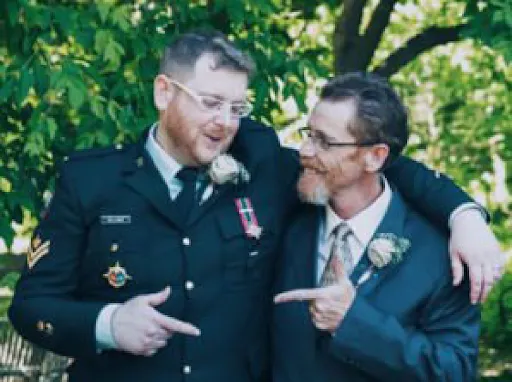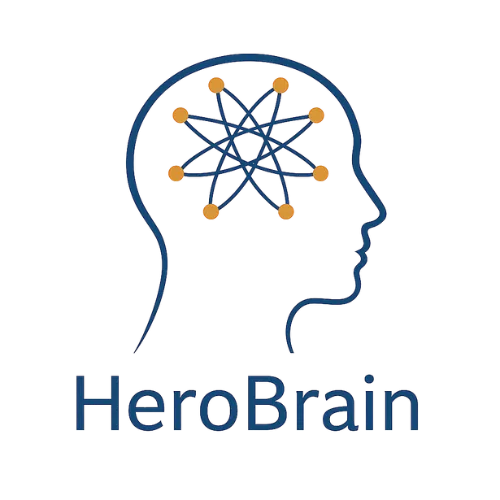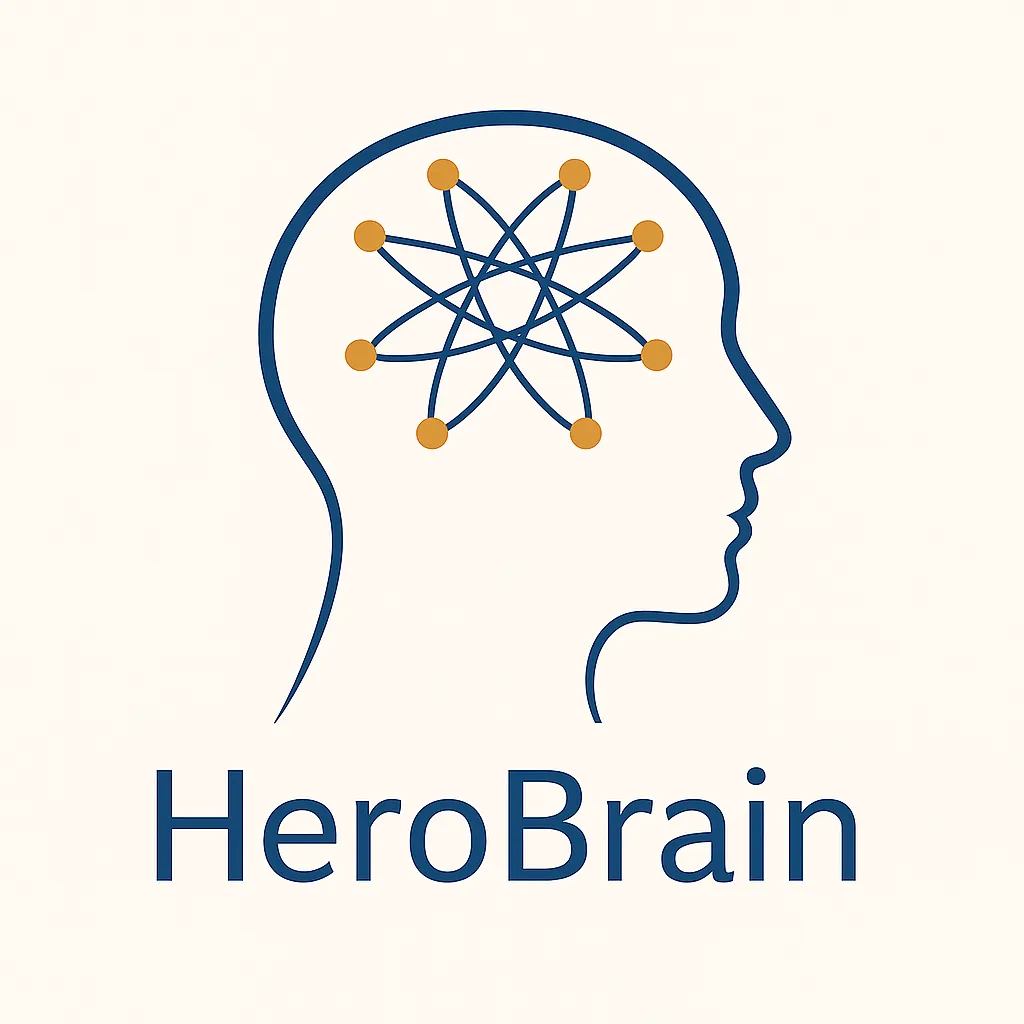How Neurofeedback Supported a Veteran’s Path to Wellness
Adapted from write-up by Gregory M. Fields
Fear is a natural response to danger, but what happens when the mind stays in a heightened state of alert long after the threat is gone? Many individuals, particularly those with high-stress professions, experience ongoing patterns of heightened nervous system activity, which can interfere with daily life.
Trent Williams, a retired Canadian military veteran, understands this firsthand. After serving in Bosnia during the brutal civil war, he found himself struggling with persistent stress reactions, difficulty sleeping, and intrusive thoughts. For years, he sought solutions through conventional support systems, including talk-based approaches and various wellness strategies. Yet, despite these efforts, he continued to feel stuck. As time passed, Williams became increasingly interested in understanding how the brain adapts to high-stress environments and what might help restore a greater sense of ease. He began exploring non-invasive ways to support the nervous system and optimize mental resilience. That’s when he came across NeurOptimal® Neurofeedback, a brain training system designed to promote self-regulation and flexibility in brain function.
How Neurofeedback Supported a Veteran’s Path to Wellness
Adapted from write-up by Gregory M. Fields
Fear is a natural response to danger, but what happens when the mind stays in a heightened state of alert long after the threat is gone? Many individuals, particularly those with high-stress professions, experience ongoing patterns of heightened nervous system activity, which can interfere with daily life.
Trent Williams, a retired Canadian military veteran, understands this firsthand. After serving in Bosnia during the brutal civil war, he found himself struggling with persistent stress reactions, difficulty sleeping, and intrusive thoughts. For years, he sought solutions through conventional support systems, including talk-based approaches and various wellness strategies. Yet, despite these efforts, he continued to feel stuck. As time passed, Williams became increasingly interested in understanding how the brain adapts to high-stress environments and what might help restore a greater sense of ease. He began exploring non-invasive ways to support the nervous system and optimize mental resilience. That’s when he came across NeurOptimal® Neurofeedback, a brain training system designed to promote self-regulation and flexibility in brain function.

A New Approach to Brain Training
NeurOptimal® is designed as a dynamical neurofeedback system, providing the brain with real-time information about its activity. This process helps the brain recognize and adapt to its own patterns, much like a mirror offering visual feedback. The system does not diagnose or treat conditions but instead offers a tool for self-regulation, allowing the brain to optimize its own functioning over time.
Curious about this technology, Williams reached out to Susan Gillies, a certified NeurOptimal® trainer working with veterans. She arranged for him to experience a demonstration session. “That first session was like, ‘Wow’!” Williams recalled. “It was like I came alive.”
After years of restless nights, Williams noticed a shift. He reported sleeping more soundly and waking up feeling more refreshed. Over time, he continued with regular neurofeedback sessions and found he was able to make positive changes in his daily routine. He described feeling more in control of his thoughts, experiencing improved focus, and regaining the motivation to pursue new opportunities.

A New Approach to Brain Training
NeurOptimal® is designed as a dynamical neurofeedback system, providing the brain with real-time information about its activity. This process helps the brain recognize and adapt to its own patterns, much like a mirror offering visual feedback. The system does not diagnose or treat conditions but instead offers a tool for self-regulation, allowing the brain to optimize its own functioning over time.
Curious about this technology, Williams reached out to Susan Gillies, a certified NeurOptimal® trainer working with veterans. She arranged for him to experience a demonstration session. “That first session was like, ‘Wow’!” Williams recalled. “It was like I came alive.”
After years of restless nights, Williams noticed a shift. He reported sleeping more soundly and waking up feeling more refreshed. Over time, he continued with regular neurofeedback sessions and found he was able to make positive changes in his daily routine. He described feeling more in control of his thoughts, experiencing improved focus, and regaining the motivation to pursue new opportunities.
Expanding the Benefits
Recognizing the potential of neurofeedback for mental resilience, Williams introduced his son Shawn, who had completed two tours in Afghanistan, to the same brain training process. Like his father, Shawn reported feeling a shift after a few sessions, noting that he felt more at ease and better able to navigate daily challenges.
Since discovering neurofeedback, Williams has become a strong advocate for tools that support self-regulation and well-being. He continues to share his experience with others, encouraging them to explore resources that may help enhance resilience and overall quality of life.
While each person’s journey is unique, Williams believes that education and awareness are key in helping individuals discover the many ways they can support their own well-being. His message to others: “There are tools out there that can help. The first step is being open to trying something new.”


Expanding the Benefits
Recognizing the potential of neurofeedback for mental resilience, Williams introduced his son Shawn, who had completed two tours in Afghanistan, to the same brain training process. Like his father, Shawn reported feeling a shift after a few sessions, noting that he felt more at ease and better able to navigate daily challenges.
Since discovering neurofeedback, Williams has become a strong advocate for tools that support self-regulation and well-being. He continues to share his experience with others, encouraging them to explore resources that may help enhance resilience and overall quality of life.
While each person’s journey is unique, Williams believes that education and awareness are key in helping individuals discover the many ways they can support their own well-being. His message to others: “There are tools out there that can help. The first step is being open to trying something new.”

Join Our Community
Call Us Today And Find Out How Joining the HeroBrain Community Can Transform Your Life And The Lives Of Your Team Members!
Get In Touch
(226) 271-5435
79 King Street
Thedford, Ontario, Canada
N0M 2N0
251 Parkhill Main St
Parkhill, Ontario, Canada
N0M 2K0

Join Our Community
Call Us Today And Find Out How Joining the HeroBrain Community Can Transform Your Life And The Lives Of Your Team Members!
Get In Touch
79 King Street
Thedford, Ontario, Canada
N0M 2N0
251 Parkhill Main St
Parkhill, Ontario, Canada
N0M 2K0
